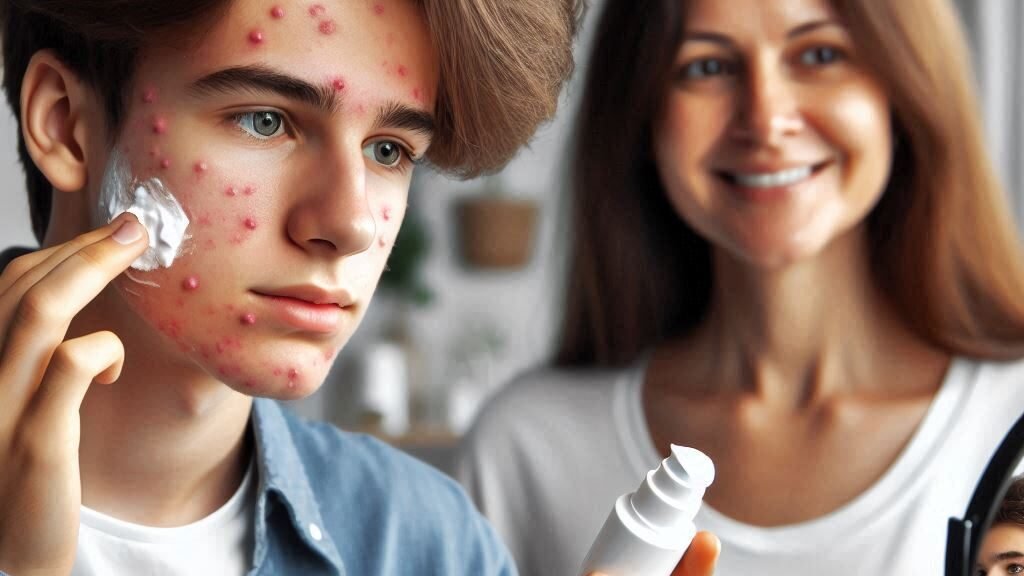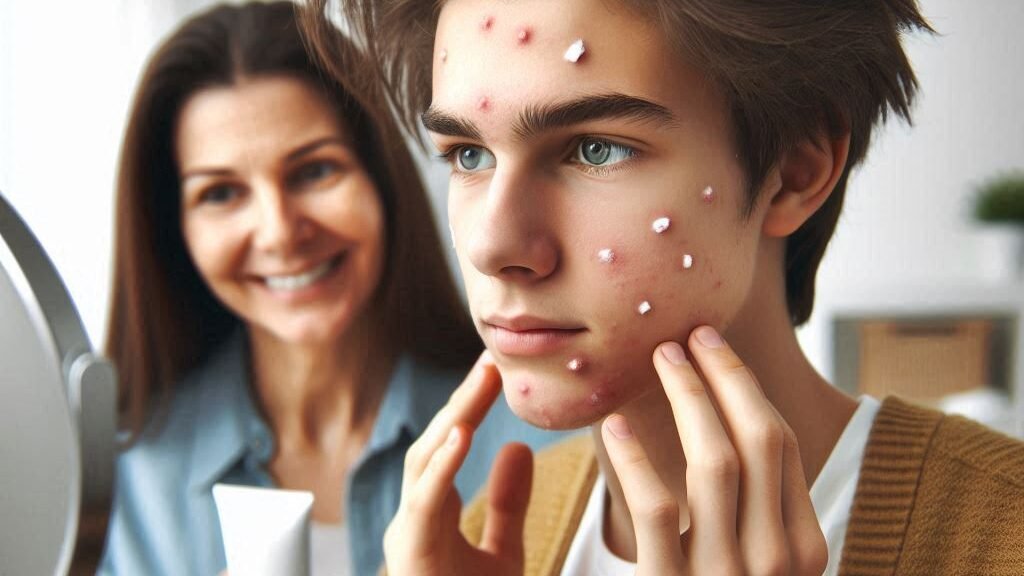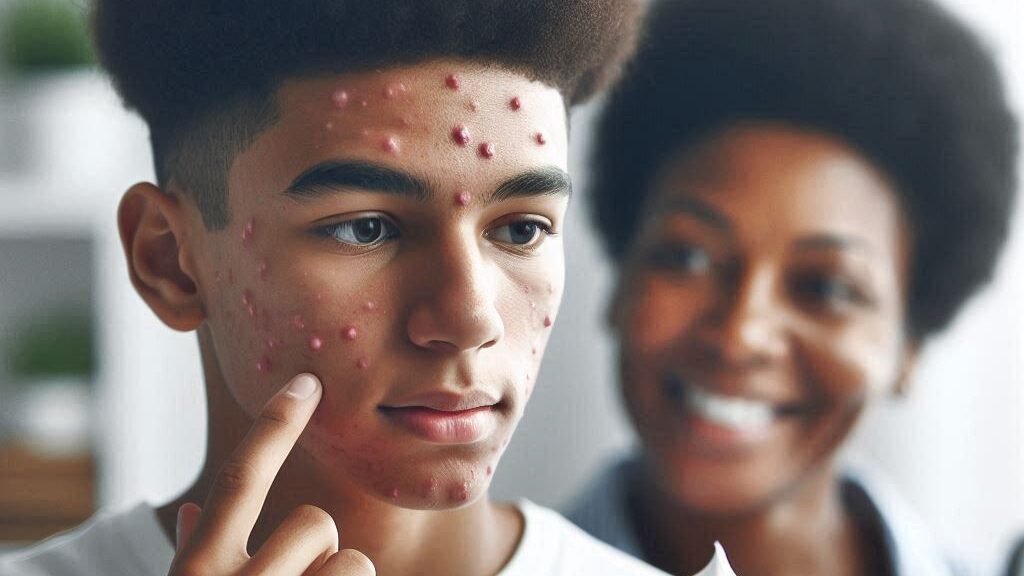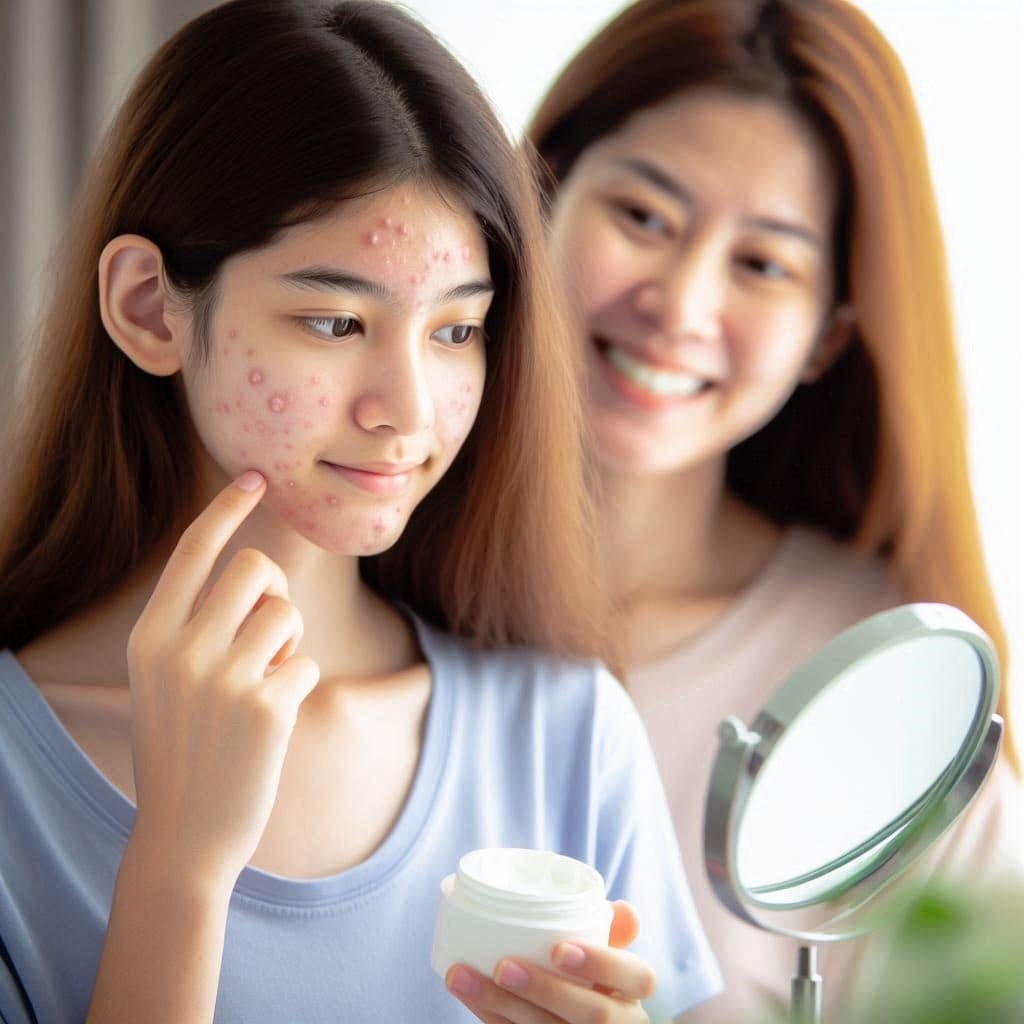Acne
Acne is a fairly widespread skin disorder that affects millions of people across the globe, including adults, children, men, and women. Often attributed to teens, acne may last into adulthood, creating both a physical and emotional issue.

What is acne?
These develop when hair follicles get obstructed with oil and dead skin cells. Acne generally presents itself as pimples on the face, neck, chest, back, and shoulders—areas that receive the most concentration of oil organs.
Causes
This knowledge is crucial to influential treatment and anticipation of the main causes of acne. A few variables add to the development of it :
Overproduction of oily substances
Our skin regularly produces an oil called sebum. Also, if a lot of sebum is delivered, it is possible to clog the pores and develop it. Fluctuations of hormones can cause higher levels of oil production to occur, including during adolescence.
Dead skin accumulation
The buildup of dead skin cells and oil creates an environment conducive for making microscopic organisms to grow in the hair follicles.
Microbes
Cutibacterium acnes (Formerly known as Propionibacterium Acnes), a kind of microorganism that inhabits human skin, can multiply fast in the blocked pores, causing inflammation and acne.
Hormonal Changes
Variations in hormone levels, for instance, in adolescence, during the feminine cycle, pregnancy, and some diseases, can trigger or worsen acne.
Diet
As the link between diet and it is under discussion, certain research in this direction states that certain kinds of food items, especially those containing refined sugars and dairy products, may exacerbate acne in some individuals.
Stress
Intense anxiety can lead to an increase in chemical production, which can worsen it.

Signs and Symptoms
It can appear in different structures, each with its presentation:
- Comedones (Whiteheads & Blackheads): sealed, closed off such skin pores that appear like small tissue-colored pimples.
- Pimples: Pores that appear to lack luster due to oxidation of sebum are opened or stopped up.
- Papules: Light, red, tender raps.
- Pustules: Cysts or pustules, which are reddish in color and accented with a white tip of the come.
- Cysts: Large, powerful, hard knots underneath the derma that can be irregular in form.
Treatment choices
Dealing with it really often means that one needs a different approach. Here are some normal treatment choices:
Physician-recommended drugs
- Topical retinoids: Derived from vitamin A, these help prevent blocked pores and reduce inflammation.
- Topical antibiotics: reduce the sources and the amount of acne-causing microorganisms and thereby minimize exacerbation.
- Oral antibiotics: In addition to mostly serious circumstances, such ones can help try to reduce microbes and inflammation from inside.
- Oral contraceptives: May be used in the management of chemicals that contribute to acne in women.
- Isotretinoin: An effective drug for oral, extreme, cystic acne that has not responded to other medicines.
Different Medicines
- Substance strips: Exfoliate to remove the first layer of skin to remove deposits such as dead skin cells and to enhance the skin surface.
- Light treatment: Exposes the skin to different light colors to destroy microbes and reduce inflammation.
- Extraction: A dermatologist can conveniently and safely have to do with the pores and whiteheads.
It is important to point out that what may be effective for one person is ineffective for the other. Consulting a dermatologist in order to choose the most appropriate methods of treating individual cases of acne is helpful.
Prevention
While it’s not generally imaginable to forestall it altogether, a few procedures can assist with diminishing its event and seriousness:
- Keep a reliable skincare schedule: Gently wipe your face two times in a day using a mild skin cleansing soap that does not clog your skin pores.
- Try not touching your face often. They carry round microorganisms and things that may cause irritation on the skin.
- Use non-comedogenic items: I recommend that you avoid selecting skincare as well as cosmetics products with components that can stop up your pores.
- Remain hydrated: Water washes the toxins in your body and maintains healthy skin by drinking large amounts of water.
- Manage stress: Try behavior pressure. decrease techniques such as meditation, yoga, or other breathing exercises.
- having a healthy eating regimen: Despite the fact that the relationship between eating regimen and it isn’t totally understood, appropriate sustenance can maintain considerable skin health.
- Try not to pick or pop pimples. This can cause further irritation and may lead to the development of a scar.
- Change pillowcases consistently: Using pillowcases that retain microorganisms and oil on them means that these move to the skin.
- Shield your skin from the sun: There are some acne prescriptions that have the impact of making your skin sensitive to the sun.
- Show restraint toward medicines: Most of these drugs take slightly some time to demonstrate profound enhancement.

Conclusion
Acne is a perplexing skin condition that is prevalent among many populations at different periods of their entire lives. As demoralizing as this very well might be and occasionally shameful, it is crucial to remember that it is manageable. In this manner, with the ideal administration of SCC and the understanding of necessary way of life changes and sedative medicines, a great many people can viably manage their condition and improve the look of their skin.
FAQs
A few eating rituals at any one time potentially induce acne?
Amid the reflection of diet and acne, a couple of inspections propose something like these sustenance sorts might influence acne in singular personalities. Foods containing a high glycemic index, such as sweet snacks and white bread, as well as foods such as dairy products, have been associated with increased of this condition in some studies. However, diet/acquired nutrition has a very dramatic impact on acne, and this differs from one person to the next. If you strongly believe there are foods that trigger the acne, consider writing down what and when you eat and sharing your observations with your dermatologist or a nutritionist.



